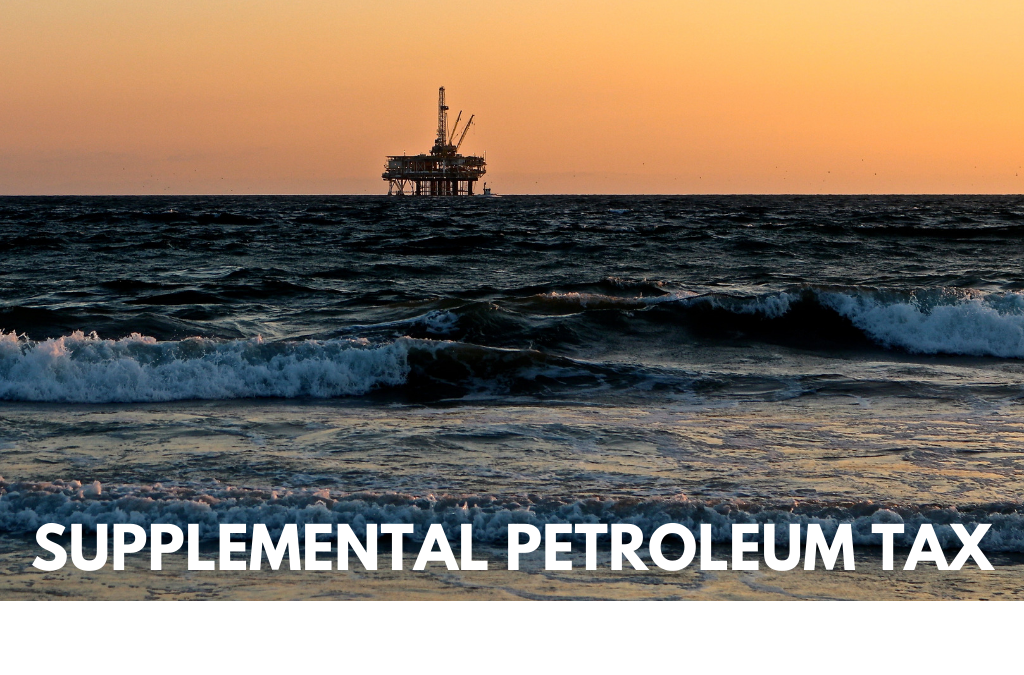INSIGHTS
Client Corner: “Eliminate the Supplemental Petroleum Tax Now!”


An Insider’s View on how T&T’s Oil Industry can be Resuscitated.
A Blog by Firstline’s Client, Greg Boyles (Founder: New Horizon Exploration)
“King Oil”. “Black Gold”. Call it what you may, but for generations the world has revolved (and continues to revolve) around the axis of this geological substance, and the lucrativeness it contains. Yet, for all its rich glory, “Black Gold” couldn’t save the world a mere 10 years ago from plunging into one of the greatest recessions of modern history; nor could it (to bring this matter home) sustain Petrotrin from collapsing in 2018. Ask almost any Trinbagonian, and they will say that they know, or themselves have been, someone who has been directly (and in many instances – painfully) affected by this closure.
So, what is the solution? And…how long can our nation’s economy survive on this present trajectory?
Today, Firstline presents a blog contributed by one of our clients, Greg Boyles, founder of New Horizon Exploration. As a key player on the inside of an oil and gas organisation, Greg puts forward what he believes is one of the major (oil) stains handicapping the growth of our industry, and he categorically stresses what he thinks is the solution needed to once more hoist us back on the right path.
Feel free to add your voice to this topic by sharing your views in the Comments Section below!
*
Fiscal Policy Members were wrong. This resulted in lower oil production and revenue. And now, the brave new ones need to step up and fix the problem.
The topic of this blog is a joke among Trinidad Oil Producers. We pray for higher prices to pay our staff, pay our bills and have enough revenue to reinvest in our effort to replace reserves and increase production. However, while we pray for higher prices, we also pray that it does not exceed $49.99 because of the negative effects of the Supplemental Petroleum Tax (SPT)
(18% Tax) that kicks-in at $50.00 a barrel.
SPT is really not a joke but rather a real problem that affects not only the Trinidad Oil Industry but, in fact, the entire country!
We all know persons in the industry that have been laid off…and those paying attention, have noticed since SPT was enacted that Trinidad and Tobago’s oil industry has been declining and so too – associated oil revenues.
Where are the new reformers? Oil drums in the pan yard will not save the industry but certainly do sound sweet in T&T.
Now, for a bit of historical context:
The much talked about and obsolete SPT created by Act 5 of 1981 was likely influenced by “folks from the Jimmy Carter era” who in 1980 adapted a windfall profits tax (WPT) in the USA.
The Carter Administration thought WPT would be a big revenue generator, and was justified because folks in Washington (mistakenly) thought that “you can’t have oil companies making windfall profits” so they enacted the tax to prevent it and enrich the treasury.
In time, Washington learned WPT proved to be counterproductive. It did not generate the revenue anticipated and reduced domestic production.
Finally, a brave new administration came along and eliminated it. Afterward, they discovered that by allowing US oil companies to make huge profits during high prices was actually a good thing. The companies reinvested their capital and found more oil and developed new technology. They also put cash aside for a rainy day that helped most survive during low oil prices. Today, US production is the highest in the world. EOG Resources Trinidad is a local producer, but they are investing their billions in Texas and produce >288,000 barrels of oil per day (in Texas alone). Why Texas, because fiscal policy is better not because oil shale is a better play than Trinidad geologic potential. Sadly however, local production could not support a refinery.
In Trinidad, when onshore producers finally receive $50 a barrel, the Trinidad Government hits them with SPT to take 18% ($9) off the top leaving them $41 a barrel. And that’s not all, they take 25% or more off the top by way of their royalty (fare) leaving producers with approximately $28 a barrel to pay for the cost of their operation (employees, maintenance, and to take risks, such as drilling new wells. But wait, that’s not all, they will tax 55% of the local producer’s net profits.
As such, Trinidad oil companies are being stripped of sufficient revenue to reinvest and take risks. The Trinidad tax story is also known to the international world. The outside investor sees Trinidad as having quite possibly the worst fiscal terms in the world. And therefore, Trinidad is marginally attractive because there are far better investment opportunities elsewhere.
Firstline can best advise as to where the world is investing at this time…and why. As far as the oil industry today is concerned, people/institutions are investing heavily in places such as the US for oil because of the fiscal terms, (there is no SPT and the corporate tax rate is a flat 21%).
This Blogger feels Trinidad was influenced by US policy makers and initiated its own version of windfall tax (SPT) for similar reasons the US did. In this regard then, it should also take a lesson from the observation made by Washington a few years later and eliminate it.
A brave administration can stop punishing its domestic oil industry by eliminating SPT now and look at reducing the 55% corporate profits tax, too. Allow your industry to flourish and it will, abundantly.
A healthy industry will increase production, hire many of the laid off Petrotrin workers, and pay their fair share of corporate net profits taxes like every other local industry.
Finally, the Trinidad and Tobago ‘Tax Man’ should stop beating up on its dying oil industry by allowing it to once again to flourish for the benefit of the country. The revenue the ‘Tax Man’ will get in the future will be far greater than the loss of revenue associated with SPT today.
Stop talking, Act NOW in 2019, ending SPT and make Trinidad and Tobago competitive once again!



1 Comment
I totally agree with you Sir!!!!!! Let’s get serious!